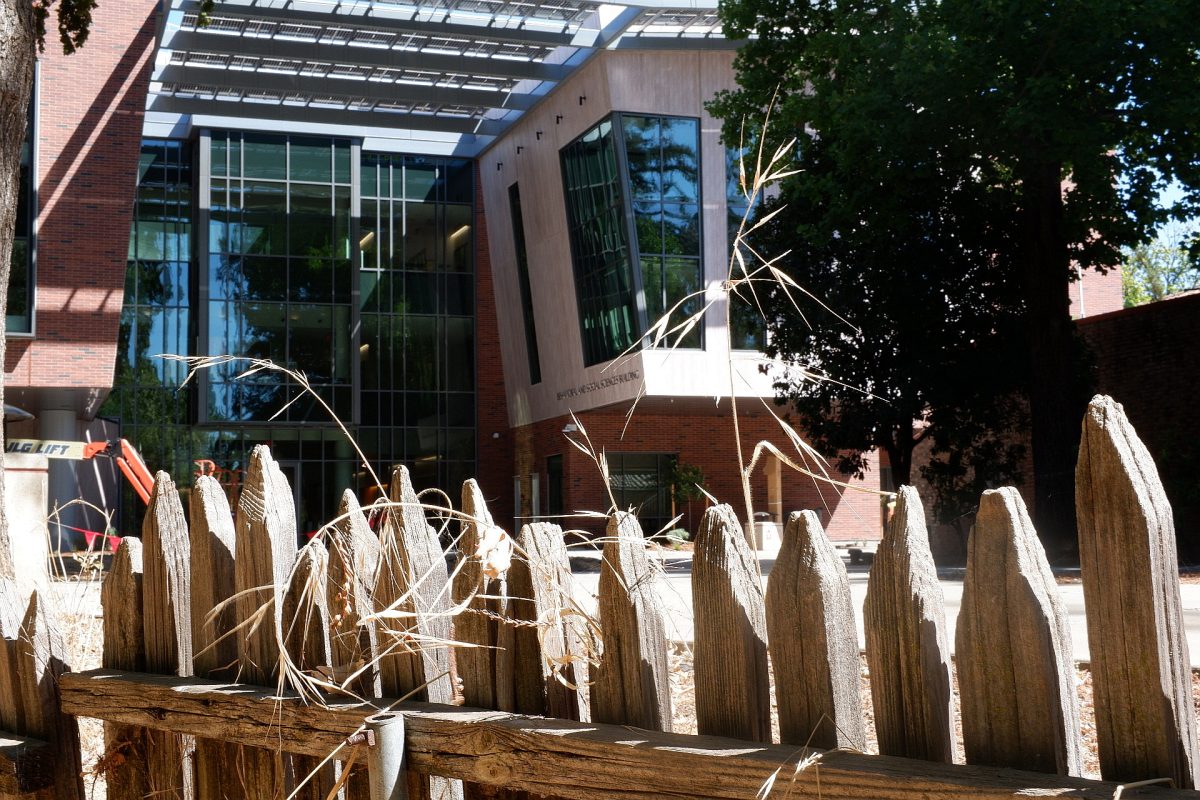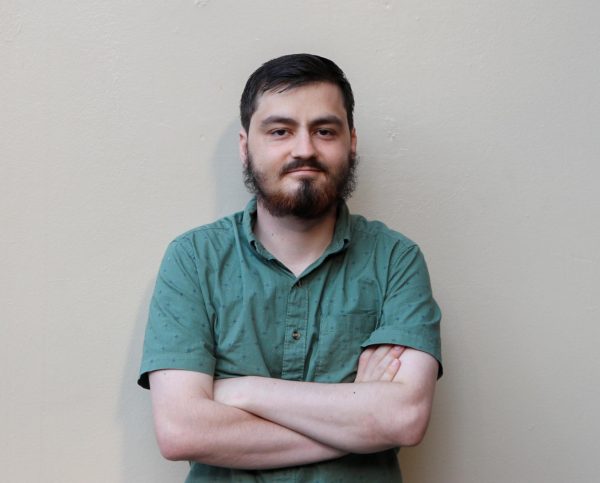It’s no secret that artificial intelligence has greatly impacted the world of higher education. Students now have powerful tools like ChatGPT available to instantly generate text to assist with assignments.
However, with the increased use of AI come concerns regarding academic integrity and the learning process. The debate around AI continues among those in the field of education. It begs the question:
Zach Justus is a professor in communications and the director of faculty development at Chico State. Justus is interested in the developments surrounding AI, and he runs a blog with fellow professor Nik Janos about AI and ChatGPT.
“I became interested in AI about the same time lots of people did, late 2022 or early 2023,” Justus said. “I started thinking about the implications for education immediately, mainly because I historically teach a lot of writing classes.”
Justus describes his feelings as “ambivalent” overall, but he has concerns regarding the “disruption” AI is having on society and higher education. Justus also advocates for students to become familiar with the technology.
“I have safety concerns about artificial intelligence, but at the same time we’ll use some of these tools to get rid of some of the worst tasks that we have to do in higher education,” he said.
There are benefits that AI tools bring to students that were not possible in the past. ChatGPT can provide immediate feedback to students’ inquiries.
“In a large language model, there’s an opportunity to sort of try out different arguments, get feedback immediately, get responses from different perspectives,” Justus said. “In places where we’ve seen the integration of large language models into some education settings, we’ve already seen some pretty significant learning and productivity gains.”
A notable use of AI mentioned by Justus was AlphaFold solving the protein folding problem in biology using an AI program. Justus said, “that would have never happened without the use of artificial intelligence.”
Chico State does not have any official policies regarding the use of AI; for now, all decisions regarding the use of AI are at the professors’ discretion. This can be problematic, according to Justus. However, the school does have guidelines regarding individual professor’s AI policies
“I think that puts students in a really difficult situation,” he said. “Because you’re going from one class where there is a ban to another class where you’re expected to use those tools and incorporate them.”
It’s a frustrating problem, but there isn’t a “universal solution” to this problem of different expectations in classes, Justus said.
“Right now there’s no policy. I do think that we need institutional-level engagement with this issue. The disruption runs throughout every aspect of the university,” said Justus. “This can’t be something that instructors solve; we have to have institutional vision for this sort of thing.”
An administrator in the division of IT who chimed in on AI was academic technology officer Kathy Fernandes. Fernandes’s technology unit manages Canvas at Chico State, as well as managing classroom technology services.
Fernandes agrees with Justus that AI “is a disruption.” However, she is excited that students can use AI like a personal tutor. She feels that ChatGPT could be a useful assistant. However, that doesn’t just mean copying and pasting what ChatGPT generates.
“But you’re here at the university, you’re paying tuition. That essentially means we expect that you’re here because you want to learn and the process of writing a paper and using your own critical thinking to create the paper is a very important part of learning,” Fernandes said.
She also mentioned AI will likely be used in various industries, so students should familiarize themselves with these programs.
“We know that AI is going to be used in the industry, so students being comfortable prompting A.I. in their studies and in the course of the things they are interested in is something that I hope they continue to do,” Fernandes said.
However, AI was brought to the attention of the university because of faculty reporting students using AI. Fernandes said that faculty is encouraged to put some kind of language in their syllabi about whether AI can be used in a course, or maybe for certain assignments or perhaps not at all.
There is also the possibility of incorrect information being generated by AI.
“AI becomes something very fun to use as we create and at the same time can be a little scary because a false prompt could be created that has false information,” Fernandes said. “It’s really wise to fact-check your resources. Many faculty, including the librarian last week, mentioned that she was looking for an article based on what ChatGPT said and there was no such article.”
With regard to Chico State not having any policies regarding AI, Fernandes believes that will likely change in the future. However, the university does not have a particular strategy at this time.
“There are other policies for academic integrity and some others that are queued up to be changed based on AI,” she said. “There are some new leaders, and I know that conversation is happening around those new leaders about how we want to approach AI”
Fernandes said “it’s just going to take some time,” but that “we’ll get there” when it comes to policies regarding AI.
Sam Moore can be reached at [email protected].











